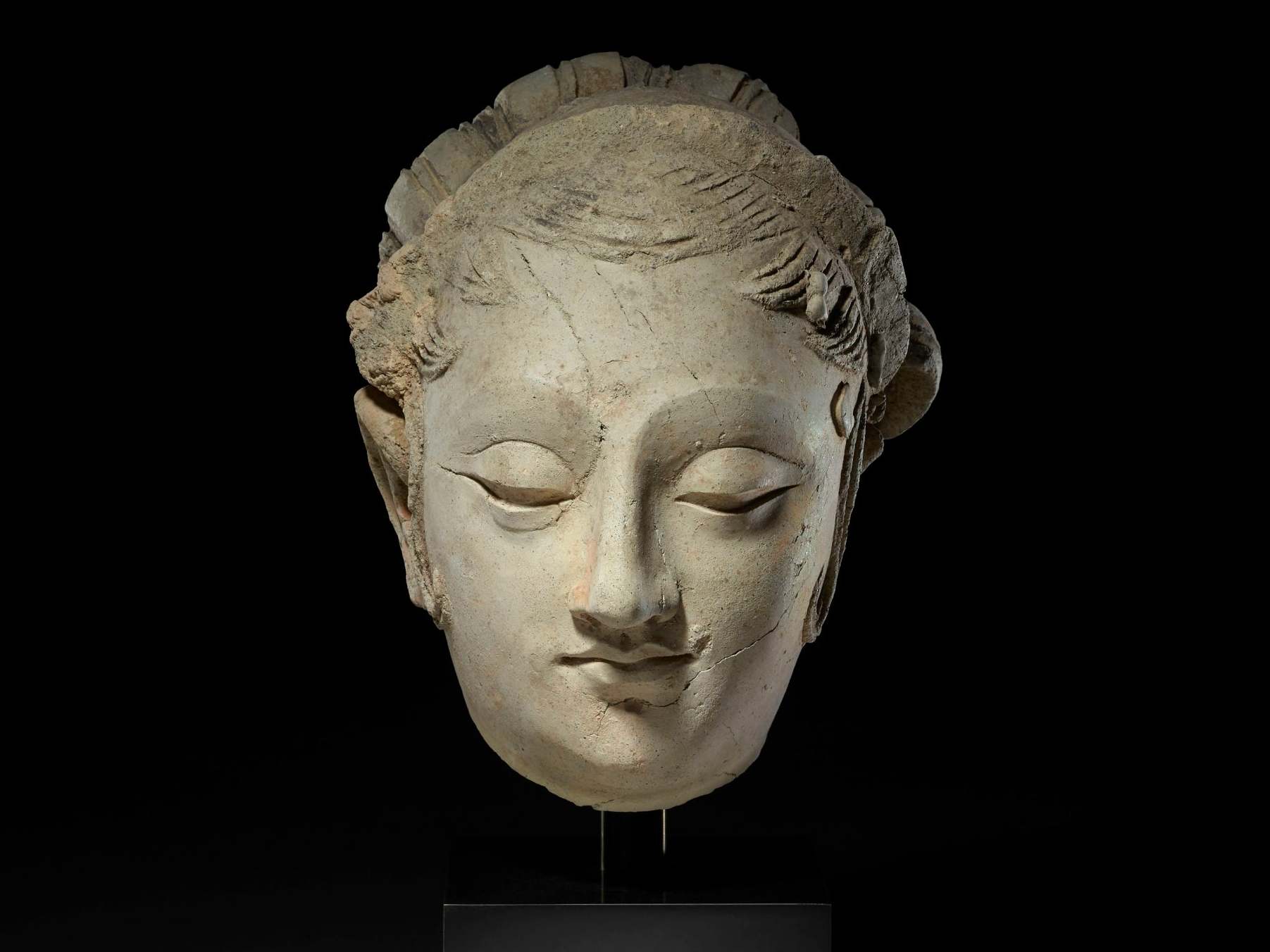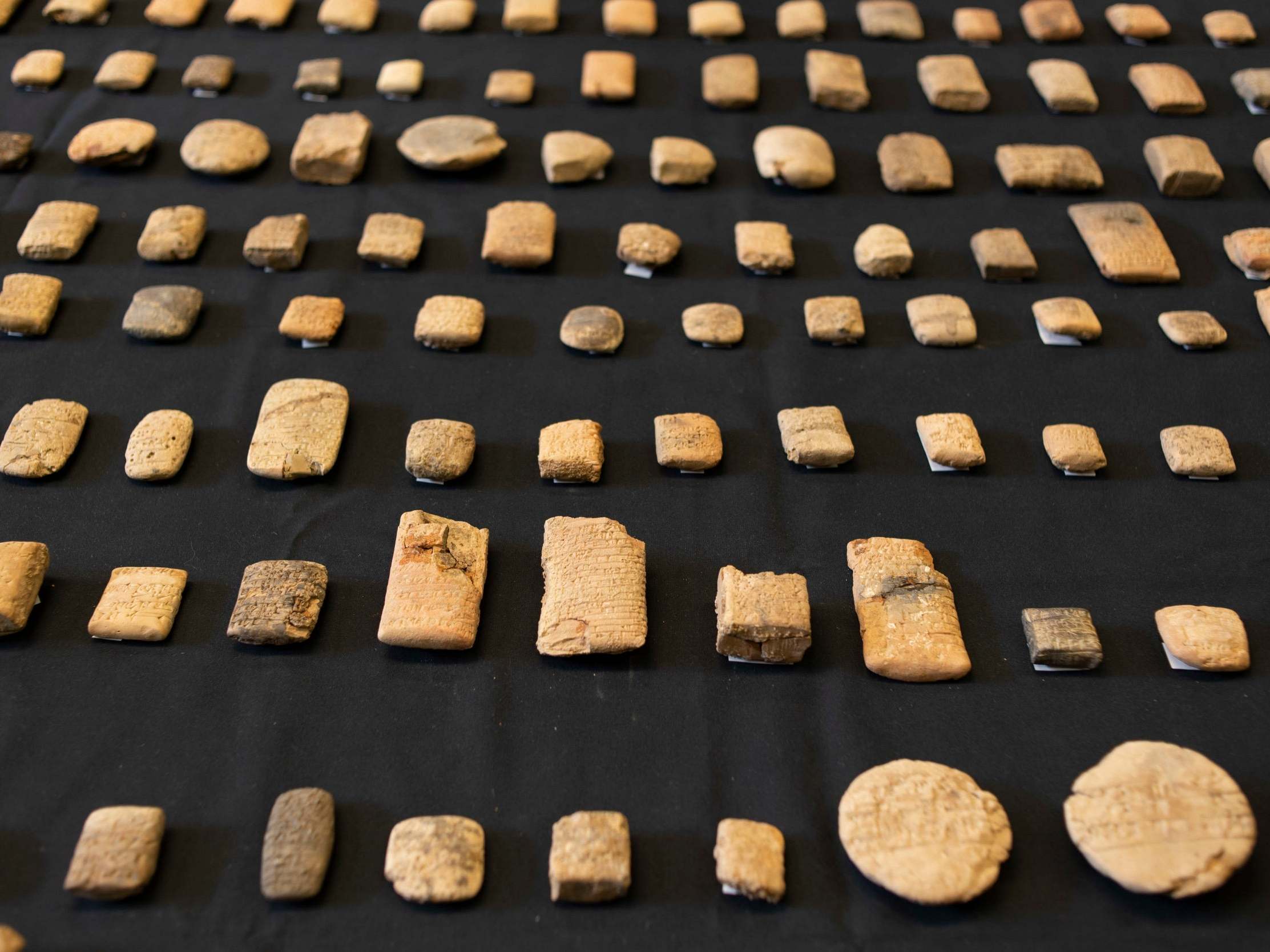British Museum to return precious artefacts looted from Iraq and Afghanistan
Nine Buddhist clay heads dating between the fourth and sixth centuries AD among artefacts set to be sent back

Your support helps us to tell the story
From reproductive rights to climate change to Big Tech, The Independent is on the ground when the story is developing. Whether it's investigating the financials of Elon Musk's pro-Trump PAC or producing our latest documentary, 'The A Word', which shines a light on the American women fighting for reproductive rights, we know how important it is to parse out the facts from the messaging.
At such a critical moment in US history, we need reporters on the ground. Your donation allows us to keep sending journalists to speak to both sides of the story.
The Independent is trusted by Americans across the entire political spectrum. And unlike many other quality news outlets, we choose not to lock Americans out of our reporting and analysis with paywalls. We believe quality journalism should be available to everyone, paid for by those who can afford it.
Your support makes all the difference.Ancient Buddhist clay heads and other precious artefacts looted from Iraq and Afghanistan and illegally exported to the UK will soon be returned to their country of origin.
The British Museum is working with the UK Border Force and other agencies to help to return the items seized during recent conflicts.
Among the objects due to be returned are a series of Buddhist sculptures, which had been taken illegally from Afghanistan and intercepted at Heathrow Airport in September 2002 shortly after leaving the Pakistani city of Peshawar.
A group of nine heads sculptured in clay feature a portrayal of Buddha, the turbaned heads of meditating bodhisattvas, the bald head of a monk and three larger heads, including one possibly depicting Vajrapani – the spiritual guide of Buddha.
The artefacts – dating between the fourth and sixth centuries AD – will be returned to the National Museum of Afghanistan after they go on temporary display in London, with the permission of the Afghan museum.
Among the items to be returned to Iraq is a collection of tablets bearing cuneiform, one of the earliest systems of writing.
A haul of 154 Mesopotamian texts written on clay in cuneiform script was seized on entry to the UK in February 2011. Most date to the period between 2100 and 1800 BC and belong to the Ur III and Old Babylonian dynasties.
After a long investigation by HMRC, they will be returned to the Iraq Museum, part of the State Board of Antiquities and Heritage of Iraq.
The British Museum has also developed a collaborative project with antiquities authorities, collectors, dealers and law enforcement agencies called Circulating Artefacts, which aims to identify and return trafficked objects to Egypt and Sudan, with support from the Cultural Protection Fund.

Over the past year, almost 700 illicit artefacts looted and trafficked from Egypt and Sudan have been identified under the scheme.
Hartwig Fischer, director of the British Museum, said: “War, conflict, climate change, globalisation, poverty and migration all play a part in the threats to cultural heritage.
“The museum adopts a systematic approach, working with many colleagues across the world to help preserve, train, conserve, document and understand material culture.
Mr Fischer added: “Sadly, this work is more essential now than ever and the museum will continue and increase its efforts to assist colleagues globally in the preservation and celebration of their cultural heritage.”
Additional reporting by PA
Join our commenting forum
Join thought-provoking conversations, follow other Independent readers and see their replies
Comments